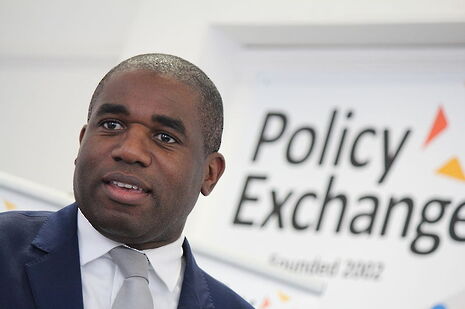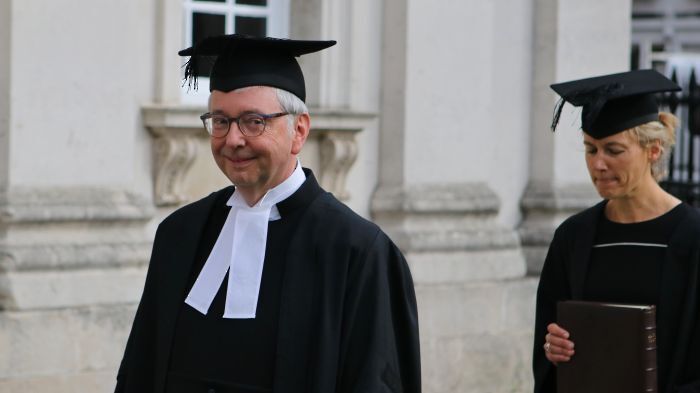Panel highlights access issues in wake of Lammy report
Former Cambridge MP Julian Huppert chairs panel of four academics debating the role of education on social mobility

Jesus College’s inaugural Intellectual Forum, chaired by the former MP for Cambridge Julian Huppert, saw top academics and political figures debate the question, ‘Does Education Improve Social Mobility?’
Held on Thursday October 26, the debate came after MP David Lammy’s recent criticism of Cambridge and Oxford as “fiefdoms of entrenched privilege” for their underrepresentation of BME students in particular.
The panel consisted of David Laws, former MP and Schools Minister under Michael Gove from 2012-2015; Rachel Snape, Head Teacher at the Spinney School in Cambridge; Ant Bagshaw, Deputy Director at education think-tank Wonkhe; and Anna Vignoles, Professor of Education and Fellow at Jesus College.
The four speakers concluded that more must be done to make education accessible to greater spread of students, with Ant Bagshaw summarising the panel’s overall sentiments in his opening remarks: “the politics of social mobility is a knotty area”.
David Laws commented that despite modern Britain being, in his opinion, a meritocracy, “the chances of acquiring this merit are as hard as ever”. He reflected on the inability of many students to reach the top universities as a result of their schooling, in light of a recent report by the Education Policy Institute, of which he is the Director. The paper argued that there is little evidence to suggest that Theresa May’s proposal to expand Grammar Schools would improve social mobility.
This year’s statistics for Cambridge University show an increasing number of students coming from the South-East of England and that around one quarter of offers were made to those from Greater London. However, in 2017 the number of state school students admitted to Cambridge University was at a record high.
While the panel generally agreed that more could be done within the education system to aid social mobility, Anna Vignoles also suggested that “family input” and one’s learning environment are “absolutely critical in determining one’s future education trajectory”.
Rachel Snape argued, “cultural capital is the stuff that makes the difference”; “young people need to see whole picture of what Cambridge can offer them”
 News / University Council rescinds University Centre membership20 February 2026
News / University Council rescinds University Centre membership20 February 2026 News / Hundreds of Cambridge academics demand vote on fate of vet course20 February 2026
News / Hundreds of Cambridge academics demand vote on fate of vet course20 February 2026 News / Judge Business School advisor resigns over Epstein and Andrew links18 February 2026
News / Judge Business School advisor resigns over Epstein and Andrew links18 February 2026 News / Caius students fail to pass Pride flag proposal20 February 2026
News / Caius students fail to pass Pride flag proposal20 February 2026 News / Union cancels event with Sri Lankan politician after Tamil societies express ‘profound outrage’20 February 2026
News / Union cancels event with Sri Lankan politician after Tamil societies express ‘profound outrage’20 February 2026










